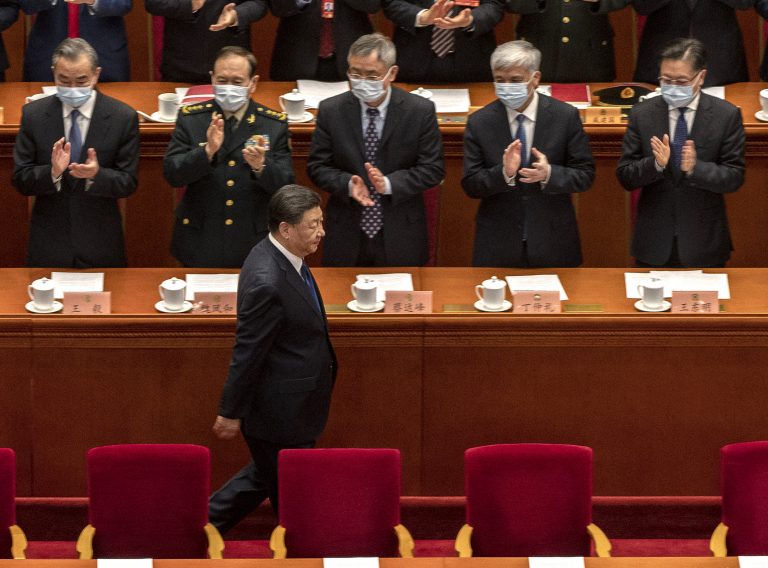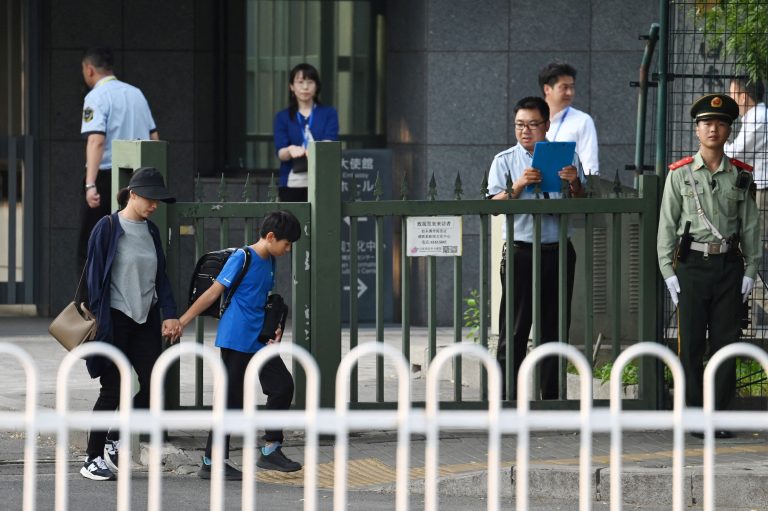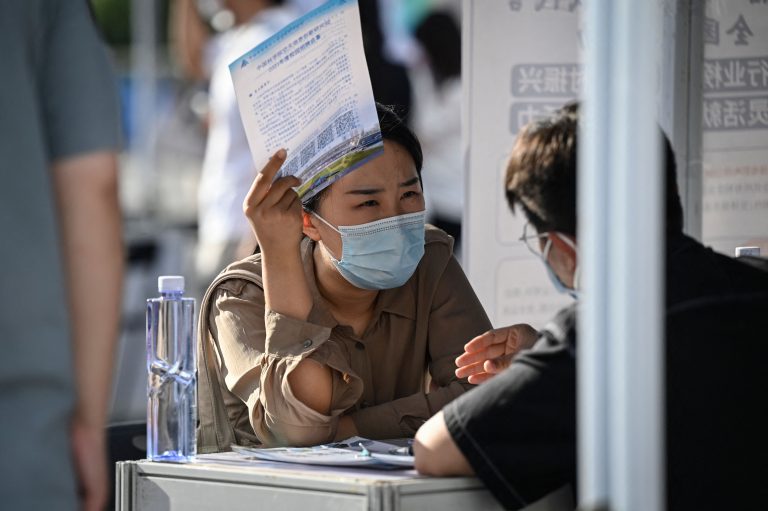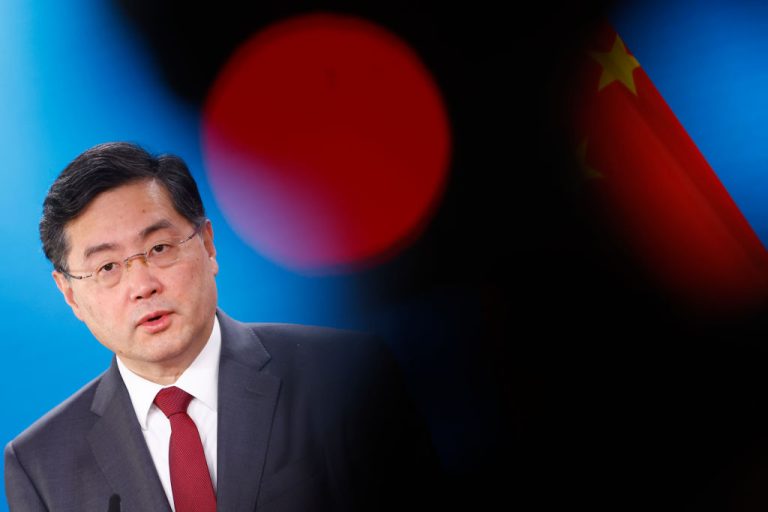The newest version of the “Working Procedures for the State Council” — the document that guides the highest state body in China — no longer contains references to concepts such as democracy, rule of law, or openness, and even does away with Marxism-Leninism, the ideology of the Chinese Communist Party (CCP).
Published on official regime websites on March 18, the Procedures also lack any mention of past CCP leaders, from Mao Zedong to Hu Jintao, or their ideological contributions to the regime. Instead, the rulebook only refers to the doctrines of Xi Jinping, informing State Council officials that they must heed his directives as “core” of the Communist Party’s Central Committee.
Xi’s official contributions to CCP ideology are casually referred to as “Xi Jinping Thought.”
While the previous version of the Procedures contained 64 articles, the newest one was shortened to 43. The document accompanies incoming Chinese premier Li Qiang, a handpicked ally of Xi.
The State Council, also known as the Central People’s Government, serves as the top executive branch of the Chinese state; as with all government bodies, it is practically subordinate to the CCP leadership. The State Council is traditionally headed by the premier, who manages the day-to-day functions of government.
Success
You are now signed up for our newsletter
Success
Check your email to complete sign up
In addition to retaining only the article about following Xi’s leadership, the Working Procedures also include a new item requiring the State Council to “report any major decisions, major events and important situations” to the Central Committee “in a timely manner.”
Such extensive changes to the State Council’s guidelines point not just to the Communist Party’s tighter grasp over the Chinese government, but also Xi Jinping’s effort to place himself above the regime, former leaders, and its ideology.
Party vs. state
Zhang Guangzhong, a Chinese current affairs commentator residing in Australia, told Radio Free Asia (RFA) that the shortened Working Procedures reflects a bid by the CCP to “take back control of the State Council” by heavily subordinating it to the Party’s Central Committee.
Meanwhile, the deletion of references to the ideologies of Mao Zedong, who founded Communist China, Deng Xiaoping, who introduced market reforms, and Jiang Zemin, who presided over the era of rapid economic growth, “highlights the importance of allegiance to Xi Jinping,” Zhang added.
The 2023 edition of the Procedures removes much of the language concerning the independent functions of the State Council, such as the concepts of government “decentralization” or “efficiency,” instead highlighting effectiveness and discipline.
A newly added line, for instance, calls for the State Council to strengthen “digital government construction,” urge “process optimization,” and continuously improve “the effectiveness of government.”
SinoInsider, a consultancy specializing in elite Chinese politics, wrote in a March 30 newsletter analysis that “the State Council has been reduced to being an administrative office of Party Central and the Xi leadership.”
Meanwhile, the analysts added that Li Qiang’s role has been made more akin to that of an “office manager” or “secretary” to Xi rather than “a powerful premier who has greater leeway to pursue his agenda for the economy,” as was previously the norm.
Establishing a single authority
In recent years, the CCP has undertaken massive efforts to surveil the Chinese population, censor free expression, and weed out corrupt and disloyal elements in the regime. Shortly after Xi Jinping came to power in 2012, he began a massive anti-corruption campaign that has become a main feature of his leadership.
“Xi’s move appears to be the continuation of a gradual and official process to downplay and marginalize his predecessors and their political legacy that began with his ‘historical resolution‘ unveiled at the Sixth Plenum of the 19th Central Committee in November 2021,” SinoInsider writes.
SinoInsider has long tracked factional struggle between the Xi leadership and the patronage network centered on late CCP head Jiang Zemin, who is sometimes lauded in the West for overseeing China’s economic rise, but was responsible for expanding human rights abuses and allowing massive corruption. Many officials taken down in Xi’s anti-corruption campaign were members of the Jiang faction.
The new Procedures help lay the groundwork to move against “associates and supporters” of the Jiang faction “who are still at large and are resisting the Xi leadership,” SinoInsider wrote, adding that it believes a major purge is forthcoming.
However, by leaving only his name in the State Council’s guidelines, Xi makes himself personally responsible for all potential setbacks the Chinese regime might encounter going forward. The risks he faces are great, considering the economic consequences wrought by three years of draconian pandemic prevention policies, worsening trade relations with the international community, and other growing crises.







